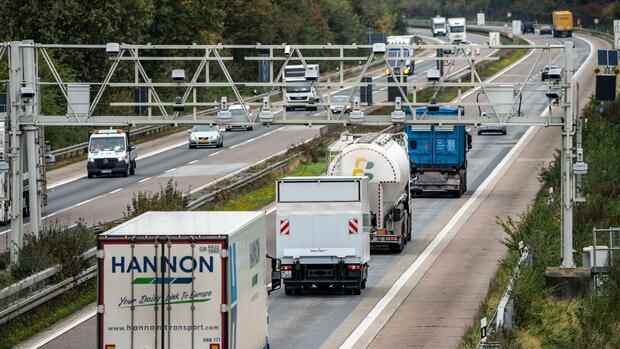In addition to returning to school from e-learning, the freight forwarders are also moaning about bureaucracy.
(Photo: imago images / Jochen Tack)
Berlin The first litmus test for the new self-image of the first Federal Minister for Digital and Transport has the printed matter number 858/21. Specifically, it is about the question of how the government can remedy the driver shortage in the freight forwarding and bus industries, for example through digital lessons in driving schools.
Volker Wissing from the FDP, together with his cabinet colleague Nancy Faeser (SPD), submitted his ideas to the Federal Council for discussion. The draft speaks of content and lessons, of methodological diversity and of learning controls.
Above all, however, the draft makes it clear: “Theoretical lessons require the physical presence of the learner driver.” Only if the face-to-face lessons are “not possible in justified exceptional cases” can the lessons also take place in digital form with the approval of the authorities responsible under state law As stated in article two of the amended learner driver training regulations.
“With our new driving license regulation, we are taking advantage of the opportunities offered by digitization,” said Minister Wissing, praising the government plan. The formulated exception saves journeys, reduces contacts and enables learner drivers to optimally prepare for their driving license despite the pandemic, said Wissing and added: “A modern country needs modern driver training.”
Top jobs of the day
Find the best jobs now and
be notified by email.
However, the regulation does not cause enthusiasm in the transport industries concerned, including driving schools. “Against the background of the acute driver shortage in the logistics industry, it would have taken a lot more,” said Dirk Engelhardt, board spokesman for the Federal Association of Freight Transport, Logistics and Disposal (BGL) in the Handelsblatt.
Coalition wants to modernize training
“This means that the new Ministry for Digital and Transport is missing the first chance to implement the goals set in the coalition agreement to modernize qualifications to combat the shortage of skilled workers in freight transport,” criticized Engelhardt.
In the coalition agreement, the SPD, the Greens and the FDP have indeed set themselves clear goals for freight transport: “We will counteract the shortage of skilled workers, modernize qualifications and reduce bureaucracy,” it says. According to the industry association, 80,000 drivers are now missing, with an additional 15,000 every year. There is a threat of delivery bottlenecks.
In addition to returning to school from e-learning, the freight forwarders are also moaning about bureaucracy. Employees would not get an appointment with the licensing authority to apply for, collect or extend driver’s licenses, driver cards or qualification certificates.
For example, the driver’s license office is fully booked until mid-February in view of the exchange campaign for paper driving licenses for card format. On top of that, the opening times are a problem for the many long-distance drivers who often work far away from their place of residence. “In the digital age, this process must be possible online,” is the demand that has lapsed up to now.
Driving schools ask federal states for corrections
It’s not just the freight forwarders who are dissatisfied. “The digital driver’s license training must be possible after the pandemic,” said a spokesman for the Federal Association of Bus Companies (BDO). “The driver shortage is not due to the corona.” Anything that helps to make the training more attractive is “important and helpful”.
And the frustration is also great at the driving schools: “If the regulation is implemented in this way, then the digital face-to-face lessons will not be attended in the coming years – unless the pandemic continues, “said Marcel Bürger, Managing Director of the Association of Innovative Driving Schools in Germany (VIFD). Accordingly, the plans are a “brake on innovation”.
Since the corona crisis, the member companies have each “taken” several thousand euros for the corresponding hardware and software. There is no evidence that the number of accidents among novice drivers has increased because they carried out the theory lessons digitally.
Association representative citizens has now written to the state transport ministers. In it, he asks the federal states to adapt the regulation. “Lessons can also take place digitally,” should be noted instead.
Citizen refers to the positive experiences of the past few months. According to a study by Saarland University, there are signs that the students have learned better and also passed the exams more, but that the training has at least “not changed negatively”. The education researcher Professor Roland Brünken attests to this in an interim evaluation.
More: Internet for everyone: how fast does it have to be at least?
